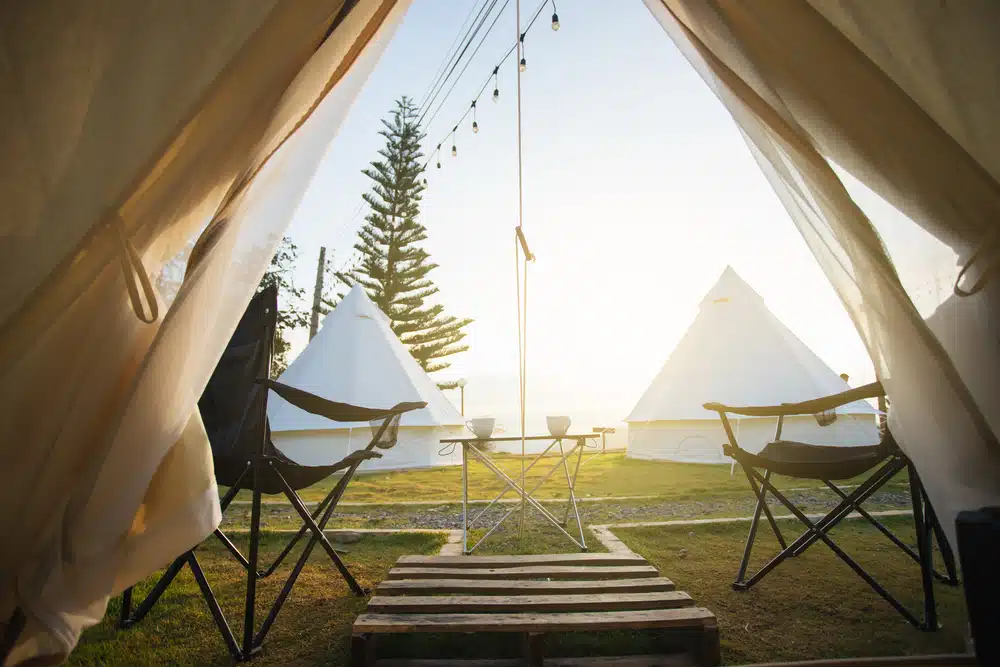Elephant Walk Tented Camp, a new luxury tented safari lodge, is scheduled to open on August 1 near the Crocodile Bridge Gate, the southern entrance to South Africa’s Kruger National Park.
The development, located in a region known for its rich biodiversity, is the result of an initiative by a family with a long-standing relationship to the area.
The camp will consist of air-conditioned, 60-square-meter tents, each designed to provide guests with a blend of modern comfort and immersion in nature, according to a report by South Africa’s TravelNews.
Accommodation features include twin or king-size beds, a mini bar, tea and coffee station, and a bathroom equipped with a double-basin vanity, glass rain shower, and a separate toilet cubicle.
Guests will also have access to a main lodge featuring a tented lobby, indoor and outdoor lounges, and dining decks with views of the surrounding bushveld. A viewing deck and a boma situated near the park’s boundary are also part of the guest amenities.
Dining at the camp will follow a set schedule, with early morning coffee and pastries, followed by brunch, afternoon refreshments, and candlelit dinners.
In addition to the culinary offerings, the camp will provide guests with several guided safari experiences within Kruger National Park. These include daily game drives in open 4×4 vehicles, guided bush walks, night drives, and bush dinners.
Elephant Walk Tented Camp is set to operate throughout the year, offering a consistent tourism product that may appeal to travelers seeking nature-focused luxury in any season.
For outdoor hospitality professionals, particularly those operating or considering ventures near natural attractions or protected areas, this development illustrates ongoing demand for upscale, experience-driven accommodations.
The integration of traditional safari activities with high-end tented lodging aligns with current glamping and eco-tourism trends, offering insights into how luxury and wilderness can be merged to attract both domestic and international tourists.
It also highlights the importance of location-based storytelling and heritage branding in attracting guests seeking authenticity alongside comfort.


